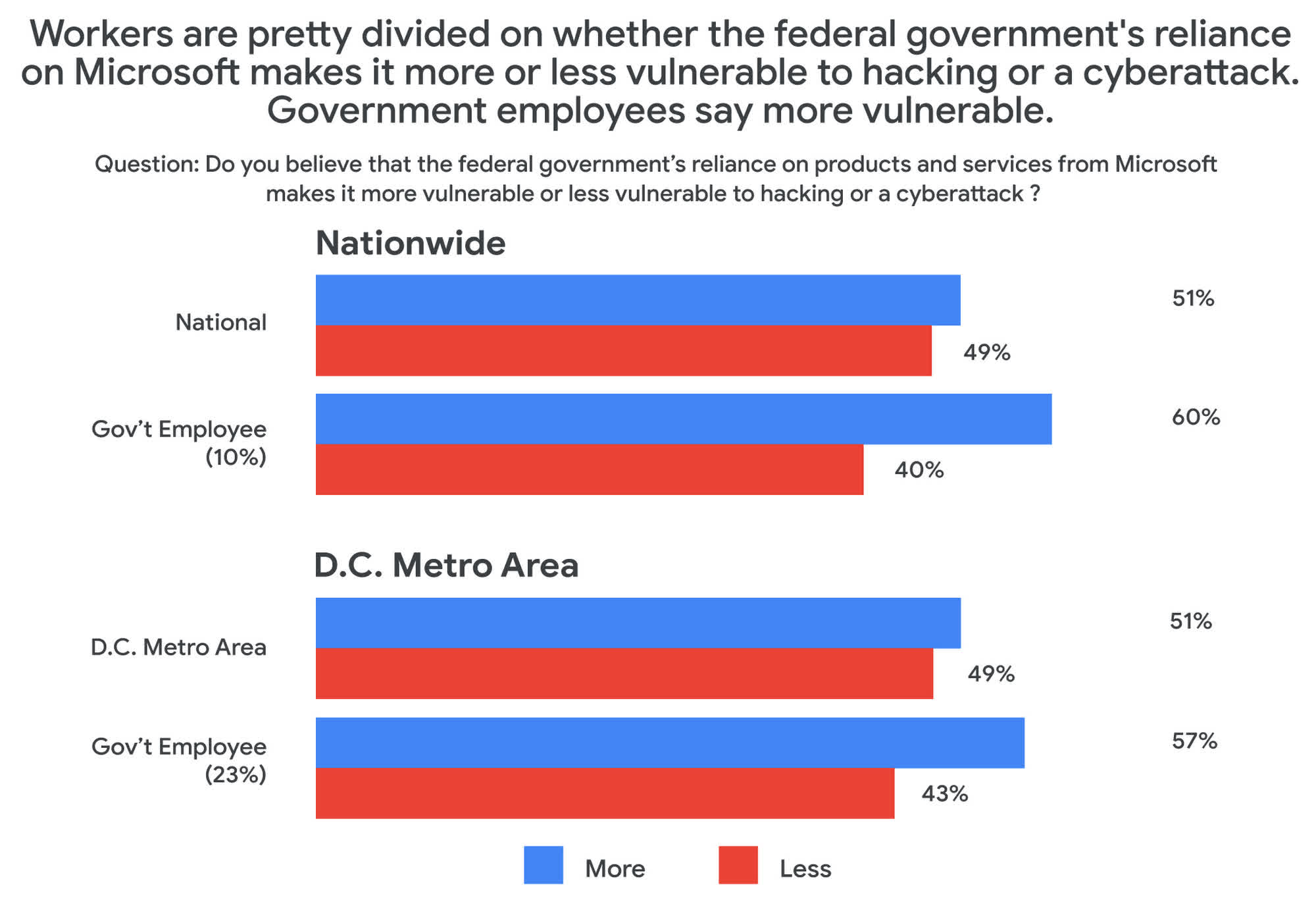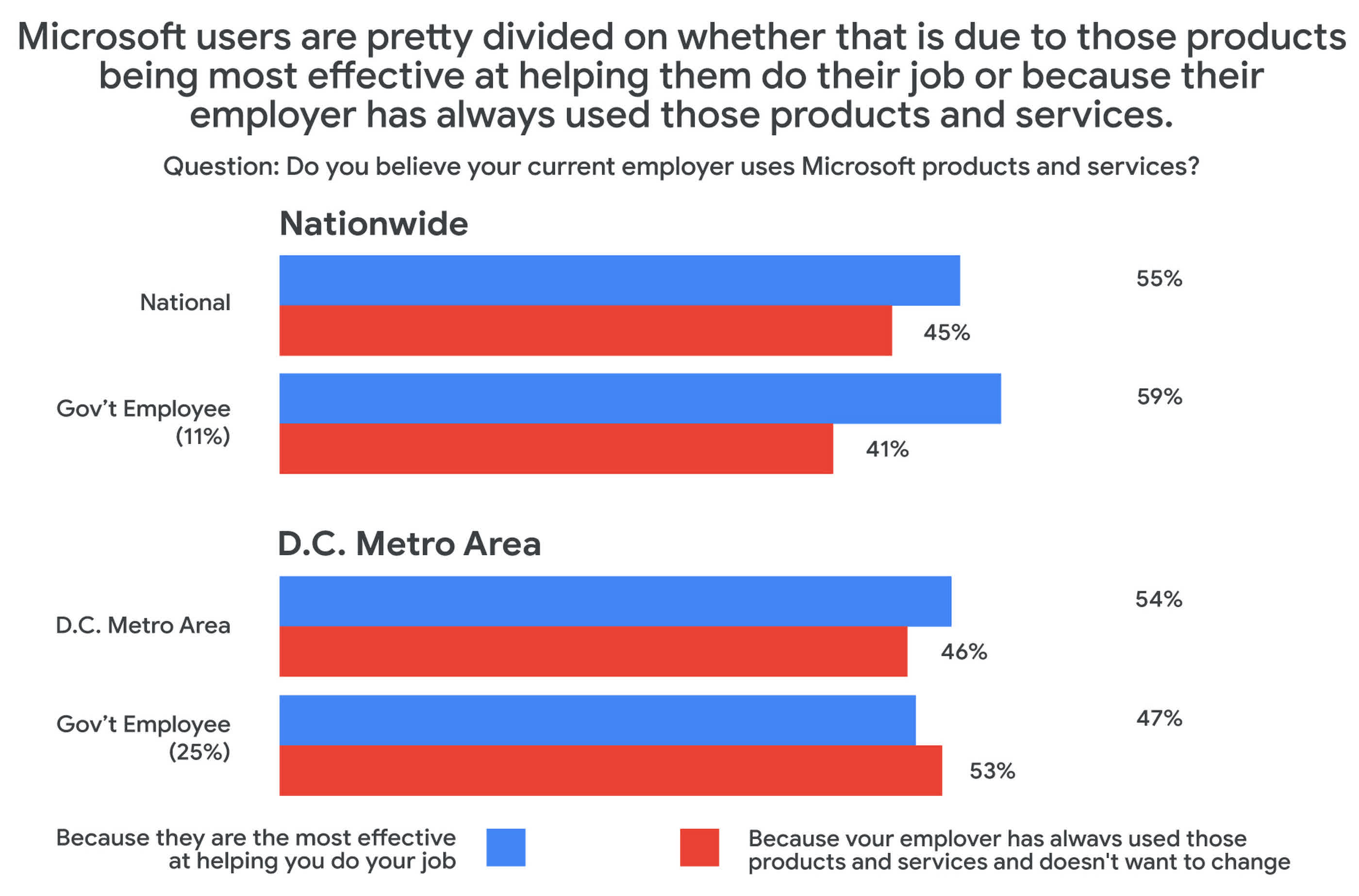A hot potato: Google and Microsoft have been at it for decades, and the search giant has now brought Redmond's IT monopoly in the US government sector into the spotlight with a new survey. Commissioned by the Google Cloud team, the Public Opinion Strategies survey polled 2,600 American workers, 338 of whom were employed across federal, state or local governments. Besides a majority of these government employees showing concern for future cyberattacks, and being unsatisfied with Microsoft's workplace offerings, Google said that governments' reliance on Microsoft tech made them more vulnerable to hacking.
In a rather scathing blog post, Google criticized the dominance of Microsoft's productivity software currently in use across US federal and state governments for the security risks and vulnerability associated with the 'legacy' tools. While there is truth to Google's claims, the Public Opinion Strategies survey it has used to make them is also questionable in itself.
For starters, the survey is commissioned by Google Cloud, instead of being independent. And if that doesn't increase the risk of bias, the meaningful sample size on which Google has drawn its conclusion forms just 13 percent of the total, since just 338 out of 2,600 surveyed people are government employees.
With that said, what the survey does reveal is that over 50 percent of these government workers would rather have other products and services - besides Microsoft's legacy software - that could help them do their jobs better.

They also shared concerns about potential cybersecurity attacks and governments being more vulnerable to hacking since they mostly relied on Microsoft products like Word, Outlook, Teams, and OneDrive.
The efficacy of these tools was brought into question as well, with the survey responses split between users going in favor of Microsoft and those stuck using these services because switching to another vendor was difficult.

Google said that this situation also risked workers adopting 'shadow IT' practices, which involves using products and services at work that haven't been officially approved by their IT departments. The survey claims that the lack of diversity in available tools has led 35 percent of D.C metro government workers to use shadow IT, 41 percent of whom fall in the 20-34 age group.
In its response, Microsoft called Google's study 'disappointing but not surprising' in an email to NBC News. Frank Shaw, Microsoft CVP of communications, said that it was unhelpful of Google to create divisions in the security community during a time of heightened alert.
He also noted that Redmond would collaborate across the industry to defend its customers and government agencies and will support the US government with its best software and security services.
